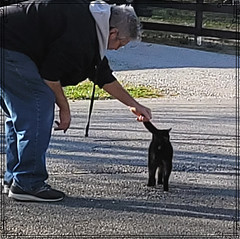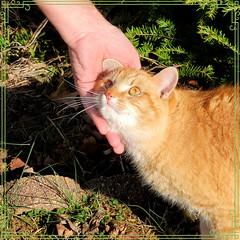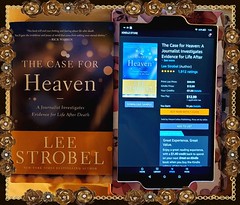Labor Strike

Strike Baby by Flickr user Nina Bargiel — CC License = Attribution, Non Commercial, Share Alike
Click image to view original in new tab and access user’s full photo stream
What would you do if you went to visit a relative at his or her job and, just as you walked up, you witness the boss beat up your relative? I mean, really, think about it. Now, at least in the U.S.A,, we can usually call the police, file a lawsuit, or something that will at least bring some kind of justice. But what if you knew that the only justice that could truly work would be to get rid of the offender?
In today’s reading from Exodus 2:11 through the end of the chapter at Exodus 2:25, we see this exact scenario in the life of Moses. He knows he is a Hebrew, so he goes to visit his kinsmen. If he just breaks up the fight, or beats up the offensive Egyptian, it will betray the fact that he is a Hebrew. If he leaves the situation alone, he has to bear the pain of watching his kinsman being treated unfairly. His solution was to wait until he found the offender alone, and then kill him and hide his body in the sand.
Unfortunately, things must not have been as private as Moses assumed, so when he corrected two of his kinsmen for fighting, they asked him if he would do the same thing to them as he had done to the Egyptian. I guess some people heard their proclamations since the next thing we know, Moses is facing a death threat and must go on the run. He ends up in Midian just as seven daughters of a priest from Midian show up to water their sheep. Field shepherds try to run off the girls, but Moses saves them and waters their sheep for them.
When the girls get back to tell their father, he insists they bring Moses to their home and feed him dinner. Eventually, he marries one of the daughters, Zipporah. She gives birth to Gershom, meaning “stranger” because Moses was a stranger in a strange land. Of course, I’m not sure here why he was a stranger since the girls and their father thought he was an Egyptian. I guess he was in a land where he was a stranger regardless of whether he was Hebrew or Egyptian.
As today’s reading comes to an end, the fearful pharaoh dies, but the people are still in bondage, and they cry out to God. God hears their cry and remembers His covenant for them as made to Abraham, Isaac, and Jacob. I’m thankful that God hears the cry of His people and that He is faithful to remember His promises to us.










I don’t think I could breathe if I didn’t believe that God was a promise keeper.
LikeLike
Amen, big sister! There’s not one day that would be worth living on this earth if we didn’t have His hope to hang on to. I don’t know how those who don’t believe in the promises of an eternity He planned can stand it.
LikeLike